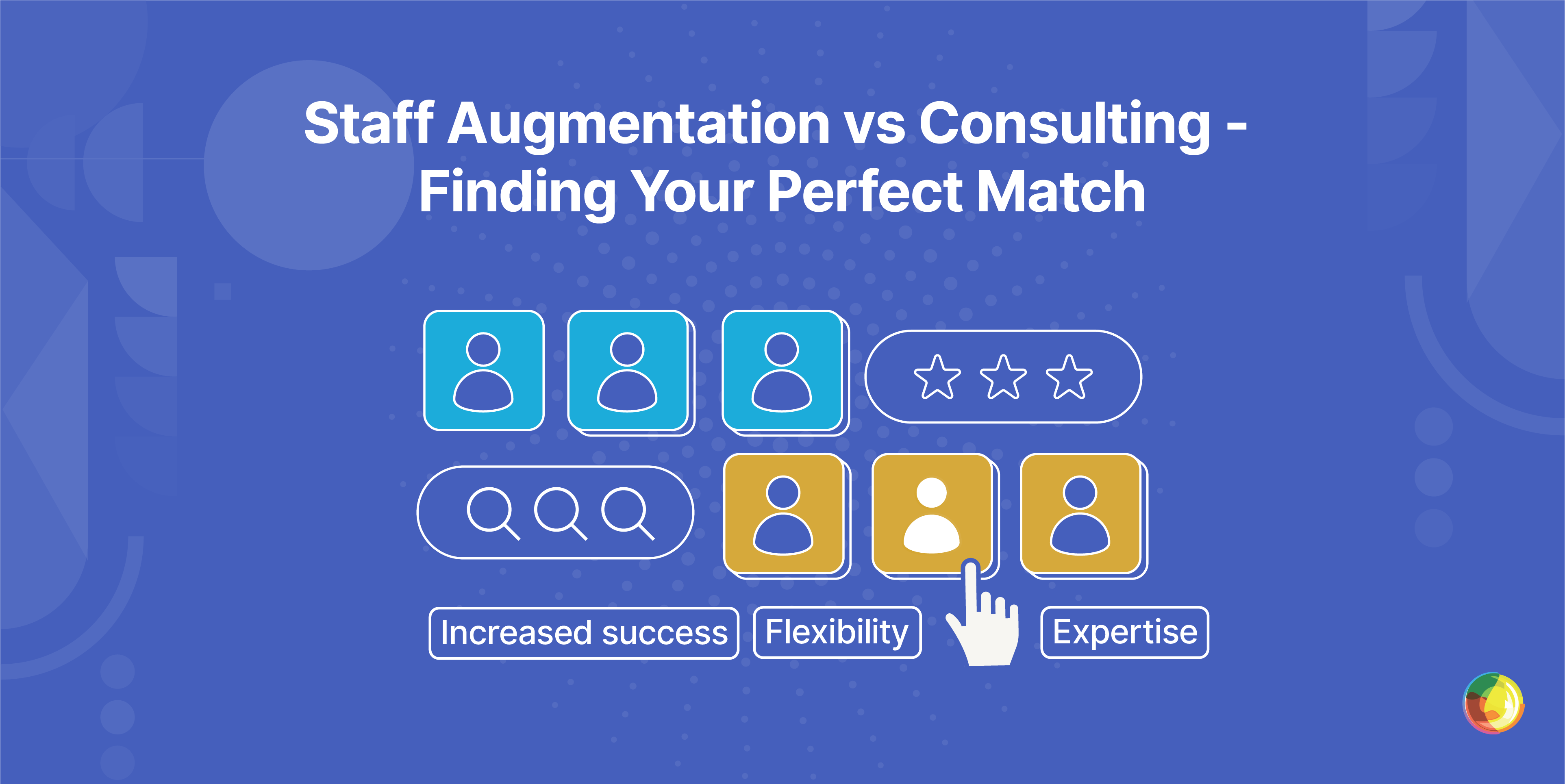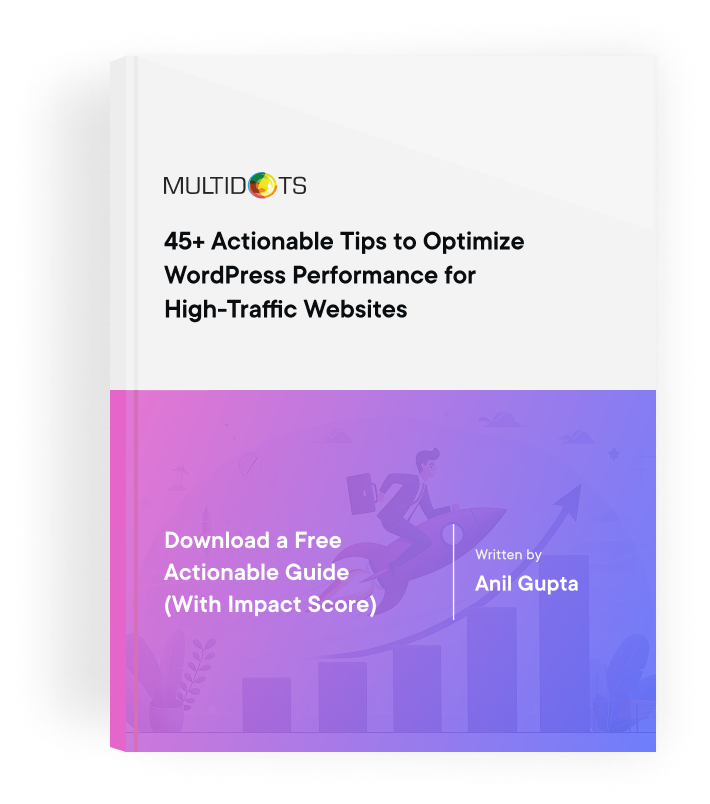Staff Augmentation vs Consulting – Finding Your Perfect Match
Torn between staff augmentation and consulting? Break down the pros, cons, and best-fit scenarios for each, so you can make the smartest call for your team and goals.

Table of Contents
Key Takeaways
- Staff augmentation gives you hands-on control and team integration; consulting delivers strategic outcomes with minimal oversight.
- Choose augmentation for technical execution and scalability, consulting for expert insights and transformation.
- Key factors: project complexity, control needs, team capacity, and long-term goals.
- Hybrid models combine strategy and execution—ideal for enterprise WordPress builds and complex digital initiatives.
When your organization faces a skills gap or needs specialized expertise, you're staring down a critical decision: Should you boost your team with extra hands through staff augmentation, or call in consultants to crack specific challenges?
It’s a dilemma that’s had many business leaders wide-eyed at 1am, and with good reason.
Staff augmentation means having external professionals join your team, follow your processes, and be managed by you.
Consulting gives you external specialists who step in with their own plan to deliver solutions or strategic advice.
Each route brings its own strengths, depending on what your business is tackling, what the project demands are, and where you’re trying to go.
In this article, we’ll give you a side-by-side comparison to help you cut through the noise and land on the option that fits your goals. Let’s dive in.
Staff Augmentation vs Consulting
While both routes bring in outside brainpower, the way staff augmentation and consulting play out day-to-day couldn’t be more different. These core differences shape everything from team dynamics to end results, so picking the right approach means knowing what you're actually signing up for. Here’s what to expect.
Management Structure: Staff augmentation keeps the reins in your hands. External hires report to your managers and slot straight into your processes. Consulting is more hands-off. Consultants steer their own ship, delivering insights and outputs without getting tangled in your org chart.
Team Integration: Augmented staff become one of you. They join your standups, share your Slack channels, and help pass knowledge around. Consultants stay a little more detached, working alongside your team without fully embedding; distance that helps keep their advice unbiased.
Financial Models:
- Staff augmentation = hourly or daily rates.
- Consulting = project-based or retainer fees.
- Augmentation costs track neatly with time spent.
- Consulting fees hinge more on outcomes than timesheets.
Engagement Timeline: Staff augmentation is your steady support, ideal for medium-term projects that ebb and flow. Consulting is more surgical: A set timeline, a clear scope, and a tidy exit once the job’s done.
Expected Outcomes: Augmented staff pitch in with ongoing workloads and flex as things shift. Consultants show up with a mission – be it a game plan, a process revamp, or a sharp set of recommendations – and hand it over neatly wrapped.
Selection Criteria: For augmented staff, it’s all about the skillset and how well they connect with your team. With consultants, zero in on their specialist knowledge, relevant wins, and whether they’ve pulled off similar feats before.
Is Staff Augmentation or Consulting the Right Option for Your Business?
Choosing between staff augmentation and consulting is about choosing what fits your situation. The right move depends on your project scope, in-house capacity, and what you’re ultimately trying to achieve. Here’s what to keep in mind.
Project-Based Decision Factors
Timeline Considerations:
If time’s tight, staff augmentation is usually the frontrunner. Got a product update due next quarter or a system migration to pull off in six months? Extra hands, working under your lead, get things moving fast.
Consulting, on the other hand, shines when strategy takes precedence over speed – think long-term initiatives like digital transformation or entering new markets, where deep research and planning matter most.
Project Complexity:
For straightforward delivery tasks, staff augmentation is a no-brainer. Need a few more developers for that WordPress migration? Easy plug-in. But for messier strategic challenges – say, reworking your entire tech stack, streamlining enterprise workflows, or staying on the right side of compliance – you’ll want consultants. They bring specialist knowledge and industry insight that goes well beyond extra bandwidth.
Budget Constraints:
- Staff augmentation offers flexible costs that flex with your timeline.
- Augmented staff budgets can be dialled up or down mid-flight.
- Consulting leans on fixed fees, with clearer ROI from defined deliverables.
- Consultants focus on outcomes. What matters is what gets delivered, not how long it takes.
Organizational Factors
Perhaps you’ve got a solid project manager but no one who speaks fluent backend. Staff augmentation plugs the technical gap while keeping your leadership in the driver’s seat. But if your team’s already juggling multiple priorities and can’t spare the focus for strategic deep dives, independent consultants might be the wiser bet.
That said, it’s worth considering the value of knowledge transfer. With staff augmentation, your team picks things up naturally – side-by-side, day-to-day. Consultants, on the other hand, will hand over shiny frameworks and clear recommendations, but unless you’ve locked in training time, they could vanish before your team knows how to make sense of those tools.
Decision Framework
Evaluate your needs across three dimensions:
Control requirements: Go for staff augmentation if you want hands-on control and the flexibility to shift gears mid-project. Pick consulting when you're happy with periodic check-ins and trust the experts to run with it.
Integration needs: Need deep collaboration and team blending? Staff augmentation’s your match. Want a sharp, independent perspective? Consulting’s got you covered.
Resource planning: If you’re building internal muscle over time, staff augmentation delivers slow-burn value. For short, high-impact change, consulting brings the heavy hitters fast.
Hybrid Approaches
Smart organizations often blend both models. Bring in consultants to shape your strategic roadmap, then tap augmented staff to get the job done. You get high-level thinking without losing grip on execution. It’s a winning combination for enterprise WordPress migrations where sharp strategy meets messy tech.
Implementation Considerations
Before you pick a lane, look closely at the financial, operational, and security ripple effects that could make or break your project.
Cost Comparison
Staff augmentation runs on hourly or daily rates, so budgets stay predictable. You scale up or down, pay for what you use, and skip long-term commitment. Consultants, on the other hand, come at a premium. Expect project fees or monthly retainers that reflect their niche expertise and strategic weight.
A few hidden costs to watch for:
- Staff augmentation takes ramp-up time. Expect a week or two before they’re flying solo.
- Consulting gigs can spiral if you’re fuzzy on what you need from day one.
- Both may require new tools, licenses, or tech investments.
Integration Challenges
Staff augmentation hinges on team chemistry. Even top-tier talent can hit roadblocks if they clash with your culture. And don’t forget these folks still need direction, feedback, and a soft landing into your systems.
Consultants come with different speed bumps. When strategy lands without follow-through, things fall through the cracks. And if you haven’t brought stakeholders along for the ride, even the smartest plan can hit a wall.
Security Considerations
Security’s non-negotiable. Both models need solid guardrails, just with different setups:
- Access management: Augmented staff often need deep access, so onboarding and offboarding need to be watertight. Consultants usually get lighter, task-specific access.
- Data protection: Lock down strong NDAs either way. Augmented staff follow your internal protocols; consultants might need sandboxed access or trimmed-down datasets.
- Intellectual property: Spell out who owns what early. Augmented staff outputs usually default to you, but consultant deliverables need signed IP transfer to keep things clean later.
Benefits of Staff Augmentation
When done right, staff augmentation brings real, measurable perks that explain why it’s a favorite for so many enterprise projects:
1. Cost Efficiency
You can skip the full-time baggage – no benefits, no office space, no long-haul contracts. And while consultants charge like they’re solving world peace, augmentation keeps things clear and scalable. You’re paying for actual work, not endless decks and day rates.
2. Direct Control
Augmented staff slot into your world, your systems, your rules. You manage them just like your internal team, so every task, sprint, and late-night bug fix stays laser-focused on your priorities.
3. Scalability
Markets shift. Scopes balloon. Timelines squeeze. With staff augmentation, you’re ready to:
- Bulk up before launch day.
- Wind down when the dust settles.
- Swap in fresh expertise as the tech stack morphs.
4. Specialized Skills
Need a WordPress wizard for a tricky database migration? Or someone who lives and breathes performance tuning? You can plug in that exact skillset, just for as long as you need it, no strings attached.
5. Knowledge Retention
Consultants pack up their know-how and leave. Augmented staff, on the other hand, teach by doing. Your team learns new tools, tactics, and best practices just by working alongside them – skills that stick long after the contract ends.
For complex, high-stakes projects where control, adaptability, and capability-building matter, staff augmentation is often the smart, scalable play.
Benefits of Consulting
Consulting brings a set of sharp advantages that make it the go-to choice for big-picture moves and business shake-ups:
1. Strategic Expertise
Consultants come armed with insights from a wide sweep of industries and clients. They’ve seen the patterns, the pitfalls, and the wins, and they bring that knowledge straight to your doorstep. It means smarter strategies, sharper execution, and fresh thinking that can reshape how your organization runs.
2. Outcome-Focused
This isn’t about clock-watching. Consulting is anchored around clear deliverables and real results:
- Milestones with teeth.
- Success metrics you can actually measure.
- Value tied to impact, not hours.
3. Reduced Management
No hand-holding required. Consultants run their own show, managing workflows, teams, and timelines. Your leaders stay focused on the big calls, not the day-to-day, giving them breathing room to drive the business forward.
4. Accelerated Implementation
No need to start from scratch. Consultants bring tested playbooks, proven frameworks, and ready-to-run solutions. What might take internal teams months to figure out, they fast-track in weeks thanks to deep experience and sharp execution.
5. Objectivity
They’re not swayed by office politics or sacred cows. Consultants offer clear-eyed assessments, ask the awkward questions, and surface ideas that internal teams might tiptoe around.
In short: If you’re after smart strategy, honest insight, and high-impact delivery, without the baggage of micromanagement, consulting’s the answer.
Expand Your Team with Multidots
Why pick between staff augmentation and consulting when Multidots gives you both – on demand, on point, and on your terms? Our flexible setup flexes with you.
With over 15 years in the game and 300+ migrations under our belt, we bring:
- Sharp strategic consulting to shape your migration roadmap.
- On-the-ground staff augmentation to keep things moving.
- Scalable support that grows as your project does.
As a WordPress VIP Gold Partner trusted by enterprises, we know how to pair big-picture thinking with hands-on delivery. From first assessment to long-haul optimization, we bring the right people, at the right moment, to make it all click.
Drop us a line to see how our hybrid model turns complex WordPress builds into smooth wins.
Feel free to schedule a quick call with our team.
Contact Us
